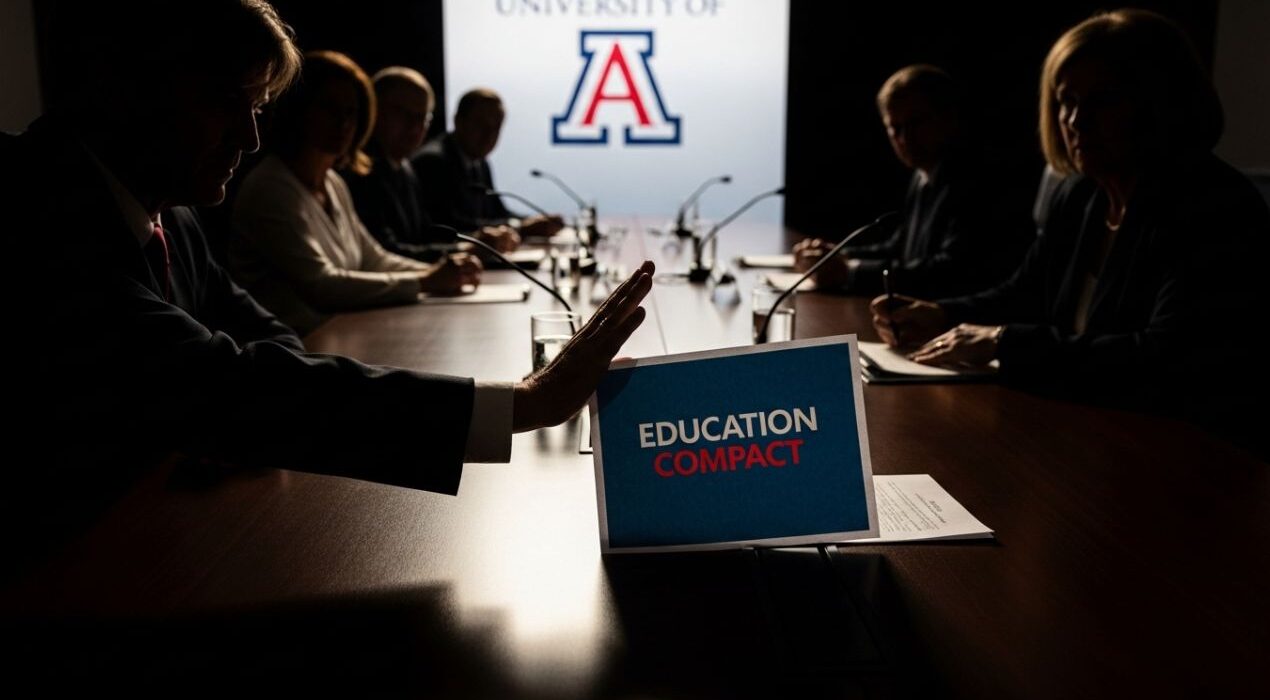University of Arizona Rejects Trump Administration Education Compact
The University of Arizona has joined several prestigious institutions in rejecting the Trump administration’s education compact. UA President Suresh Garimella formally declined the offer of preferential funding in exchange for embracing political agenda items. The university emphasized its commitment to competing for federal research funds strictly on merit. This decision maintains UA’s position on academic freedom and institutional independence.
The proposed “Compact for Academic Excellence in Higher Education” offered preferential access to federal benefits. In exchange, universities would commit to specific policies including race-neutral admissions and biological gender definitions. The compact also required freezing tuition for five years and capping international enrollment. Seven universities have now rejected the proposal since its October 1 distribution.
Protecting Academic Values
UA’s response struck a more conciliatory tone than some other institutions. President Garimella’s letter emphasized common ground with some administration ideas about higher education reform. However, he firmly stated the university seeks no special treatment and believes in merit-based competition. The Arizona Board of Regents expressed strong support for UA’s position.
The federal government represents the university system’s largest single funder. UA’s annual budget includes $320 million in federal funds, about ten percent of its total budget. This financial relationship adds significance to the decision to reject the compact’s terms. The university maintains that merit-based funding strengthens American innovation and technological advancement.
Faculty and Student Concerns
University faculty have expressed strong concerns about the proposed compact’s implications. Many educators worry about constraints on teaching and research topics, particularly in gender studies and climate science. Faculty members argue the compact would make certain research areas “unworkable” and represent a form of government censorship.
United Campus Workers Arizona represents employees at the state’s public universities. The organization’s acting president highlighted potential impacts on free speech and academic freedom. Students and staff demonstrated on campus last week against the compact. These community responses influenced the university’s careful consideration of the administration’s proposal.






